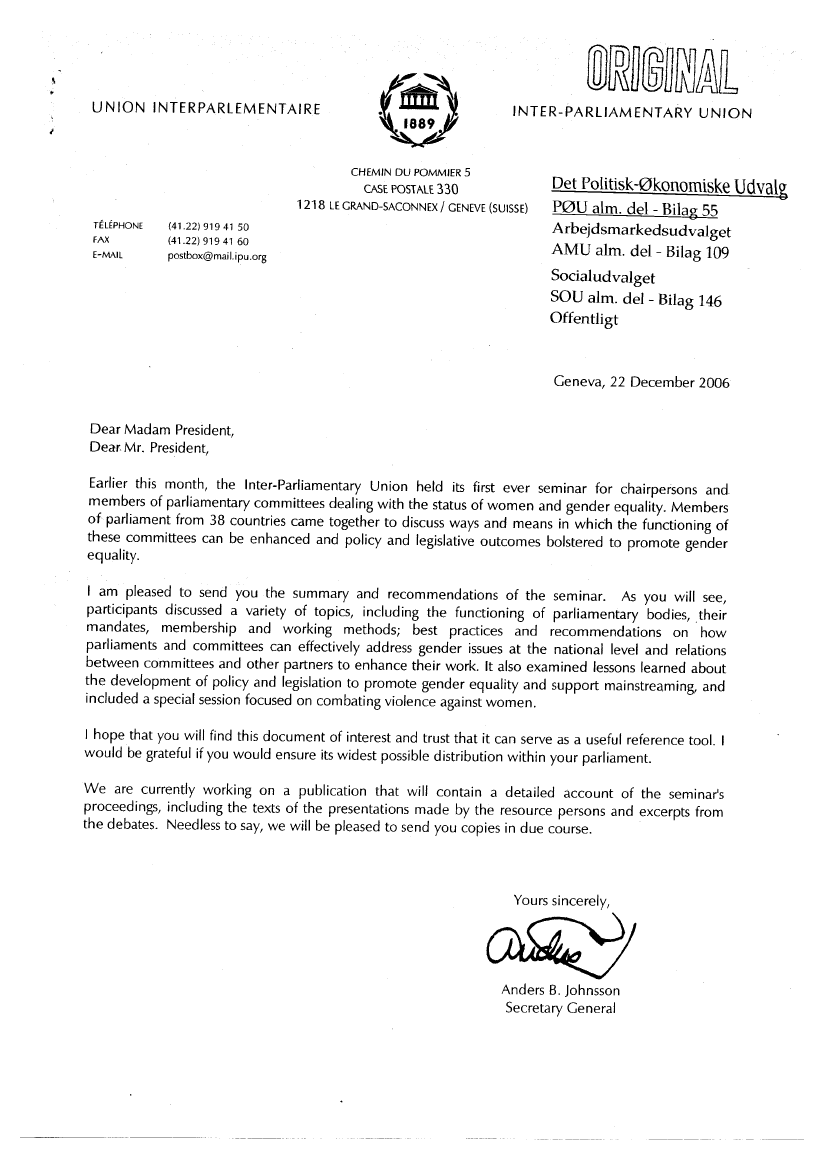
UNION INTERPARLEMENTAIRE
1889
CHEMIN DU POMMIER 5
CASE POSTALE
330
INTER-PARLIAMENTARY UNION
Det
Politisk-økonomiske Udvalg
1218
LE GRAND-SACONNEX / GENEVE (SUISSE)
TELEPHONE
FAX
E-MAIL
(41.22) 919 41 50
(41.22) 919 41 60
PØU alm. del - Bilag 55
Arbejdsmarkedsudvalget
AMU alm. del - Bilag 109
Socialudvalget
SOU alm. del - Bilag 146
Offentligt
Geneva, 22 December 2006
Dear Madam President,
Dear.Mr. President,
Earlier this month, the Inter-Parliamentary Union held its first ever seminar for chairpersons and
members of parliamentary committees dealing with the status of women and gender equality. Members
of parliament from 38 countries came together to discuss ways and means in which the functioning of
these committees can be enhanced and policy and legislative outcomes bolstered to promote gender
equality.
I am pleased to send you the summary and recommendations of the seminar. As you will see,
participants discussed a variety of topics, including the functioning of parliamentary bodies, .their
mandates, membership and working methods; best practices and recommendations on how
parliaments and committees can effectively address gender issues at the national level and relations
between committees and other partners to enhance their work. It also examined lessons learned about
the development of policy and legislation to promote gender equality and support mainstreaming, and
included a special session focused on combating violence against women.
I hope that you will find this document of interest and trust that it can serve as a useful reference tool. I
would be grateful if you would ensure its widest possible distribution within your parliament.
We are currently working on a publication that will contain a detailed account of the seminar's
proceedings, including the texts of the presentations made by the resource persons and excerpts from
the debates. Needless to say, we will be pleased to send you copies in due course.
Yours sincerely,
Anders B. Johnsson
Secretary General